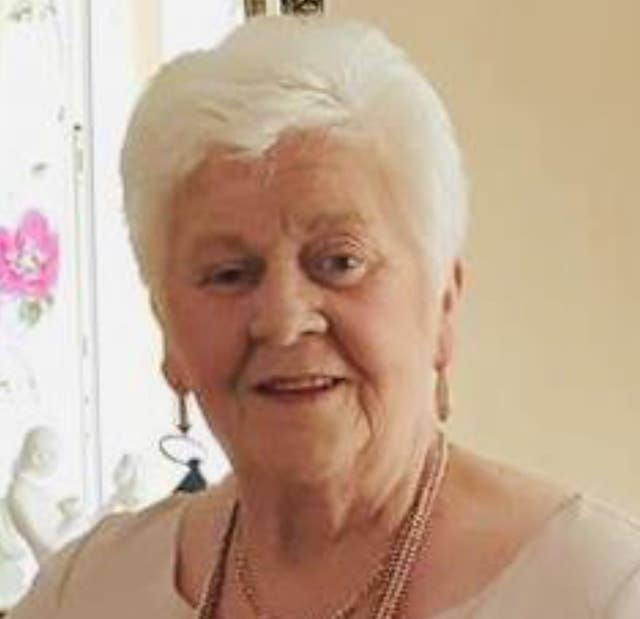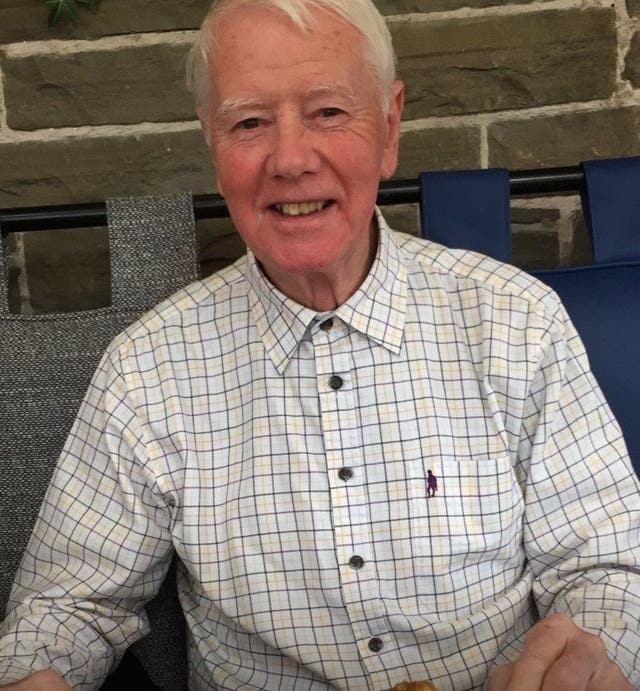Coroner urges action on road deaths caused by drivers with failing eyesight
HM Senior Coroner for Lancashire Dr James Adeley has sent a report to Transport Secretary Heidi Alexander.

An inquest into the deaths of four people killed by drivers with failing eyesight has found enforcement of visual legal standards for motorists is “ineffective and unsafe”.
HM Senior Coroner for Lancashire Dr James Adeley has sent a report to Transport Secretary Heidi Alexander to say action should be taken to prevent future deaths.
He labelled the licensing system for drivers as the “laxest in Europe” as he pointed out the UK was one of only three countries to rely upon self-reporting of visual conditions affecting the ability to drive.
Dr Adeley said it was also concerning that the UK was the only European country to issue licences without any visual checks for a continuous period up to the age of 70.

He made the remarks at the inquests in Preston of Marie Cunningham, 79, Grace Foulds, 85, Peter Westwell, 80, and Anne Ferguson, 75.
Friends Mrs Cunningham and Mrs Foulds were struck by Glyn Jones, 68, in his Audi A3 as they crossed the road in Southport, Merseyside, on November 30 2021.
Jones was aware for some years before the collision that his sight was insufficient to meet the minimum requirement to drive a car but failed to declare it to the Driving and Vehicle Licensing Agency (DVLA).

When he was jailed for seven years and four months, his sentencing hearing was told he could not even see his steering wheel clearly.
Mr Westwell was hit by Neil Pemberton, 81, as he crossed the road in Langho, near Blackburn, on March 17 2022.
Pemberton, who was jailed for 32 months, had a long history of eye disease and was informed on several occasions by different clinicians that he should not drive, the inquest heard.
He also repeatedly failed to declare his sight deficit on multiple licence applications to the DVLA.

Mrs Ferguson died when she was struck by a van driven by Vernon Law, 72, in Whitworth, Rochdale, on July 11 2023.
A month before Law was told he had cataracts in both eyes but he lied to an optometrist that he did not drive.
Law, who was jailed for four years, knew he had problems with his eyes for years before the collision but his sight loss could easily have been corrected.
Law also failed to declare his sight issues on multiple licence applications to the DVLA, the inquest at County Hall heard.
Dr Adeley said: “The four fatalities shared the same feature that the driver’s sight was well below the standard required to drive a car.
“The current system for ‘ensuring’ drivers meet the visual legal standards is ineffective, unsafe and unfit to meet the needs of society as evidenced by the deaths of Marie Cunningham, Grace Foulds, Anne Ferguson and Peter Westwell where the DVLA continued to provide licences to drivers who had failed to meet the legal sight requirements.”
The Department for Transport said it would consider the coroner’s report once received.
A spokesperson added: “The NHS recommends adults should have their eyes tested every two years and drivers are legally required to inform the DVLA if they have a condition which affects their eyesight.
“We are committed to improving road safety and continue to explore ways to achieve this.”
Dr Adeley said: “My condolences are and remain with the families who have lost loved ones due to collisions caused by drivers who prioritised their own selfish pleasure, independence and enjoyment of continuing to drive a car when each of them knew that their vision was defective and their inability to see pedestrians resulted in four deaths.”
When drivers reach the age of 70, and every three years after, they renew their licence on the basis of self-certification that they can read a number plate at 20 metres and have not been told by a doctor or clinician that their vision has fallen below the legal limit for driving.
The coroner said: “Over the age of 70 the incidence of diseases that affect the eye rises sharply and not all can be detected by the driver unless they undergo an ophthalmic assessment.
“There is no question of the renewal application as to whether or not the driver’s visual fields are sufficient to meet the legal standards for driving.
“Visual fields can only be assessed by an ophthalmic assessment using specialist equipment.
“Self-reporting of visual conditions permits drivers to lie about their current driving status to those performing an ophthalmic assessment and avoid warnings not to drive.
“Drivers may also admit they drive but then ignore instructions not to drive and fail to notify the DVLA.
“All three drivers in this case either lied concerning the driving status, wilfully misinterpreted questions to avoid driving advice not to drive, adopted fictions of their visual performance to allow them to drive, prioritised their own enjoyment and independence over the lives of other road users and repeatedly obtained licences from the DVLA due to a defective self-reporting system that does not confirm the driver meets the visual legal standards for driving and is open to abuse.”
Failure to notify the DVLA of a new or worsening eyesight condition from the age of 70 is a criminal offence punishable by a fine of up to £1,000 but the coroner pointed out: “However, as the DVLA have never referred a case to the police where a condition was not disclosed for consideration for a prosecution, this appears to be a sanction without teeth.”
The inquests heard that the number of drivers aged over 70 increased by more than 50% between 2014 and 2024 and continues to increase by approximately a quarter of a million drivers each year.
Surveys of optometrists in the UK have reported that more than half reported seeing a patient in the last month who despite being told their vision was beneath the driving standard indicated they would continue to drive, the inquests heard.
Another survey of the public found that 29% of motorists said they would continue to drive despite knowing their vision is below the legal standard.
Following the inquests, the family of Mrs Cunningham said: “Our mum, and her friend, were killed by the selfish, reckless actions of Glyn Jones, an obnoxious, self-righteous man who chose to ignore repeated medical advice telling him that his eyesight failed the legal limit to drive, to this he showed a complete disregard for the safety of others.
“His decision to put his own convenience before the law, before ethics, before human lives, cost our family everything.
“This tragedy was not inevitable. It was entirely avoidable.
“And we are left grappling with the painful truth that if this man had acted responsibly our mum would still be with us.”
Terry Wilcox, of Hudgell Solicitors, representing the families of Mrs Cunningham, Mrs Foulds and Mr Westwell, said: “People ignore what they are told when it doesn’t suit their lifestyle, and in reality there is nothing in place to stop selfish people putting others at risk by getting back behind the wheel.
“We presently have a system under which the DVLA relies upon drivers to self-report, hand over their licence and stop driving when they’ve been told by a qualified healthcare professional that their eyesight is not to the required standard.
“This inquest has shown that simply doesn’t happen.
“Over the past two weeks, so many life-threatening gaps in the system have been exposed.
“Put simply, the DVLA and the Department of Transport has no accurate statistical data or evidence of the number of visually impaired people driving on our roads on a daily basis with failing eyesight.
“Tests are not done regularly enough, and when they are, they serve no purpose.
“Best estimates are that around 2% of drivers would fail the driving eyesight test – which would equate to around 750,000 drivers and 4,250 journeys every day on the M25.
“It is quite frankly frightening.
“Essentially, the only proof of suitable eyesight drivers have to provide is on the day of their driving test, when a number plate has to be read from 20 metres away.
“If you pass your test at 17, you are not asked to provide real evidence or proof of your eyesight ability ever again.
“That standard was set in the 1930s when the life expectancy for a man was 60 and for a woman was 62.
“We now have an ageing population with more than six million licence holders over the age of 70.
“Whilst drivers have to reapply for their licence at 70, it’s simply a tick-box exercise.
“There is no requirement to produce evidence of eyesight ability, and the inquest heard that medical professionals are massively restricted by patient confidentiality rules and regulations.
“They can only report to the DVLA with the consent of their patient or when they have strong suspicions an individual has ignored their advice.
“In reality, they don’t report.
“It is simply wrong that licence applications are based on trust.
“It should not be possible to self-certify – and lie – when completing licence renewal applications.
“That is the reason for the issue being massively underreported and undetected.”





